- Learning time
- 60 minutes
- First play time
- 120 minutes
Cosmic Frog
Designed by: Jim Felli
In Cosmic Frog, you are… well, cosmic frogs. And your goal is to harvest gigantic clumps of landscape from the shard, a colossal mass floating and fracturing in space, before vomiting it back up again into your vault, where the layout of these regurgitated lands is key to how many points you get at the end of the game. Sound bananas? It is.
The shard is made up of a set of hexagonal barren tiles, upon which landscape tiles are added randomly during set up: lowland tiles first, and then highland tiles atop these. Broadly speaking, your frog – the game comes with several froggy miniatures – takes one action per turn; bouncing around on the shard, collecting these landscape tiles in its gullet, before jumping off the shard and into the aether before regurgitating them into a vault. Actions are simple: leap to move, harvest to gather tiles, disgorge to redistribute your earthy wealths into the vault. Note that an empty gullet gives you plenty of freedom to bounce around, but as your gullet fills up, so your movement becomes somewhat… compromised.
Additionally you can slipstream, jumping off the shard and then paying 1 oomph to land on any hex adjacent to the aether. Oh yes – every frog starts with six oomph, and you can also spend two oomph to take an extra action. You can also recover: making all your spend oomph available again.
One pivotal action however is to attack. You can attack when on the shard or in the aether, and a successful attack means two things: the attacking frog can steal landscape from out of the defender’s gullet (yes, it’s pretty gross) and the defender receives knockback: either across the shard itself, or, if it was attacked in the aether, into the Outer Dimensions. These are bad, because you’ll be spending time struggling out of them instead of doing all the lovely eating and vomiting you like so much.
Turns are decided randomly by the flip of a card, and each player takes a single action (or an extra one if they want to spend oomph) before cards run out and are shuffled again. Mixed into the deck are two special cards: the Aether Flux which allows all frogs to keep or change their special abilities (each frog has one), and the Splinter – which determines where the Shard breaks, as it slowly disintegrates. These splinters remove landscape and barren tiles from play (and may hurt unluckily-placed frogs!) and also may determine the end of the game, which is either when all landscape tiles have been claimed by frogs or when all special fracture tiles (the backs of some barren tiles) are revealed. At that point, the variety of lands in your vault are scores, but also their layout: types on land score for being in a line, with longer lines better than shorter ones. Cosmic Frogs like geometry!
The guru's verdict
-
Take That!
Take That!
Plenty. Two mile high frogs in space don't like sharing.
-
Fidget Factor!
Fidget Factor!
Usually pretty low, but will vary depending on player count. Turns are fast.
-
Brain Burn!
Brain Burn!
Although it's all fairly chaotic, it's not actually overwhelming tricky to work out what to do on your turn. It's a fairly tactical game though, and the lack of future-planning may mean the odd pause.
-
Again Again!
Again Again!
There's lots of in-built randomness here, with special powers, dice for combat, variable set-up and player decisions all making for a veritable food-fight on a large scale

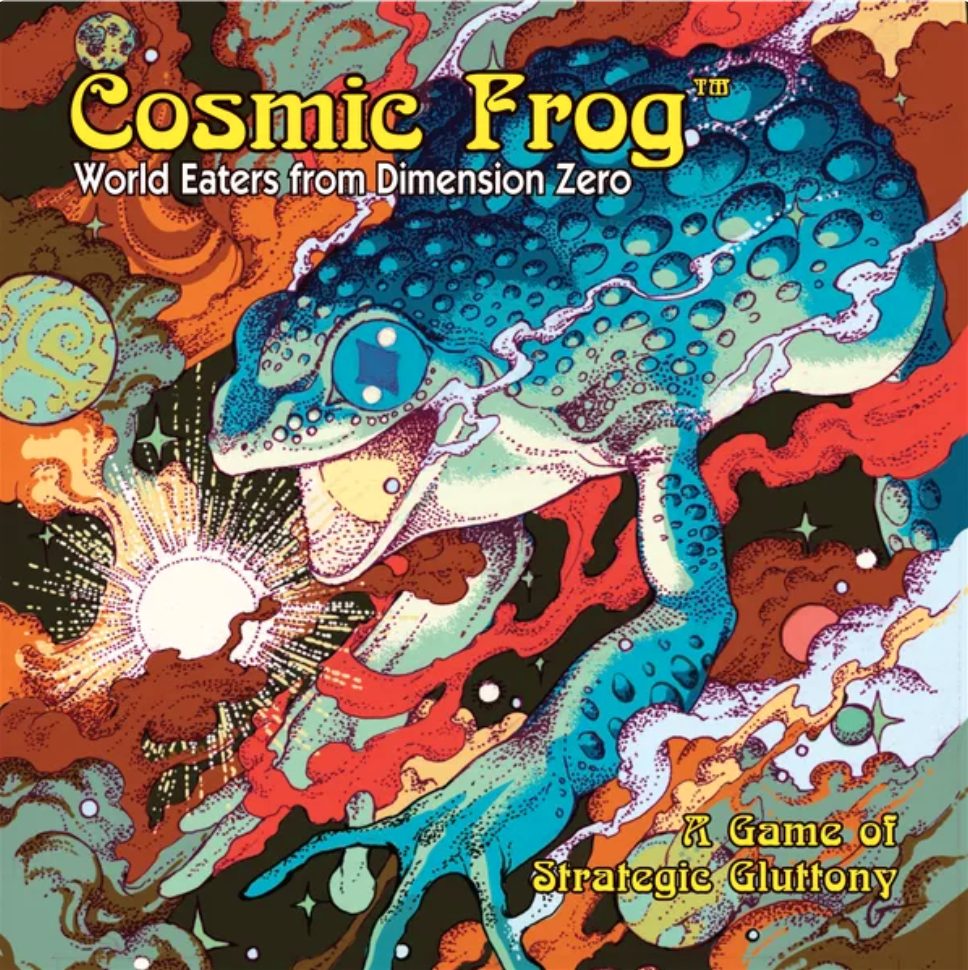
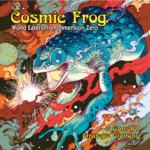
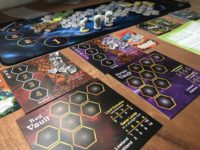
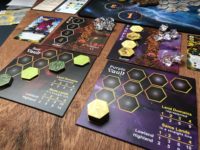
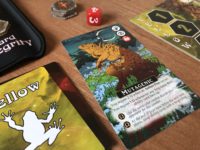
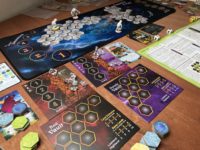



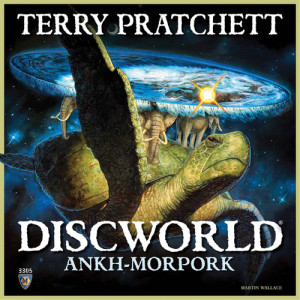
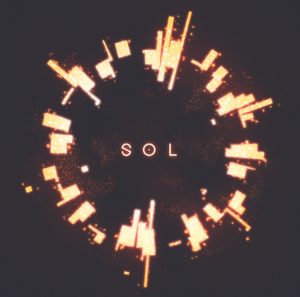
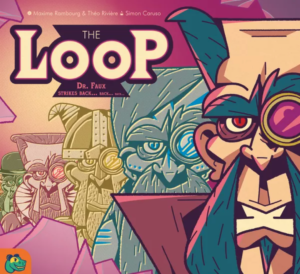
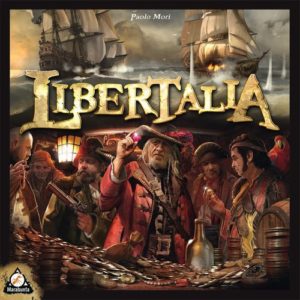
Sam says
My main gripe with Cosmic Frog is how the rulebook makes a reasonably simple game look remarkably complex. True, there's a fair bit going on around the basic get-land, lay-it-out-in-rows whilst fighting off other frogs, but it's not quite as overwhelming ten pages of fairly dense rules suggest. And the game is so admirably insane I love it for its sheer chutzpah. But, to get the most from the game you need to get familiar with it's unintuitive leanings and love the chaotic nature of what they produce. And I have to confess I haven't done that, because even though I like chaos and bunfights on a board, and I love the production, and who doesn't want to control a vast space frog, Cosmic Frog does itself enough of a disservice with that rulebook that after an exploratory play I never found the energy to return to it. That probably says a lot more about me than it does the game though, so don't be put off if the theme, presentation and high interaction appeal. But do be prepared for a learning experience bordering on the cryptological, and a play experience that doesn't so much hint at randomness as elope with it.